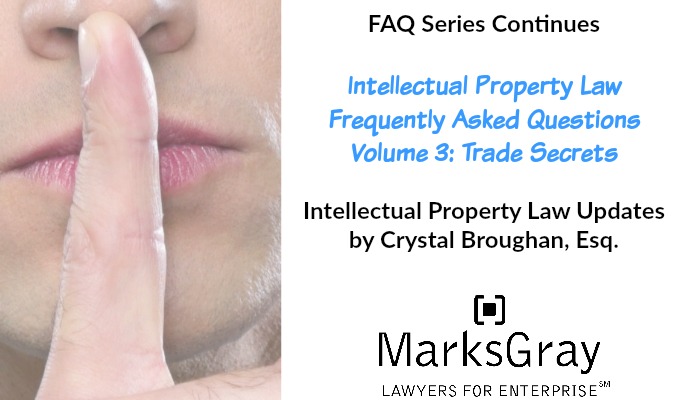FAQ Series Continues…
Intellectual Property Law can be a very confusing topic of conversation with clients, businesses, and friends. Today we are covering our third topic in our recurring Frequently Asked Questions series. Trade Secrets.

What is a trade secret?
The term “trade secret” means all forms and types of financial, business, scientific, technical, economic, or engineering information, including patterns, plans, compilations, program devices, formulas, designs, prototypes, methods, techniques, processes, procedures, programs, or codes, whether tangible or intangible, and whether or how stored, compiled, or memorialized physically, electronically, graphically, photographically, or in writing if –
(A) the owner thereof has taken reasonable measures to keep such information secret; and
(B) the information derives independent economic value, actual or potential, from not being generally known to, and not being readily ascertainable through proper means by another person who can obtain economic value from the disclosure or use of the information;
18 U.S.C. § 1839(3)
How can I protect my trade secrets?
How you protect a trade secret depends on upon the type of secret. Some secrets you can lock in a safe and make sure a limited number of people have access to the safe and those people have reviewed and signed confidentiality agreements. Other trade secrets can only be protected by establishing policies regarding trade secret information with appropriate non-disclosure and confidentiality agreements in place. If the secrets are stored on a computer system then you will need to make sure you use passwords and/or encrypted files along with having appropriate policies and agreements in place.
Crystal Broughan is an intellectual property law attorney with Marks Gray, P.A. If you would like to learn more about Marks Gray’s intellectual property law services please contact Ms. Broughan at [email protected] or 904-807-2180.
